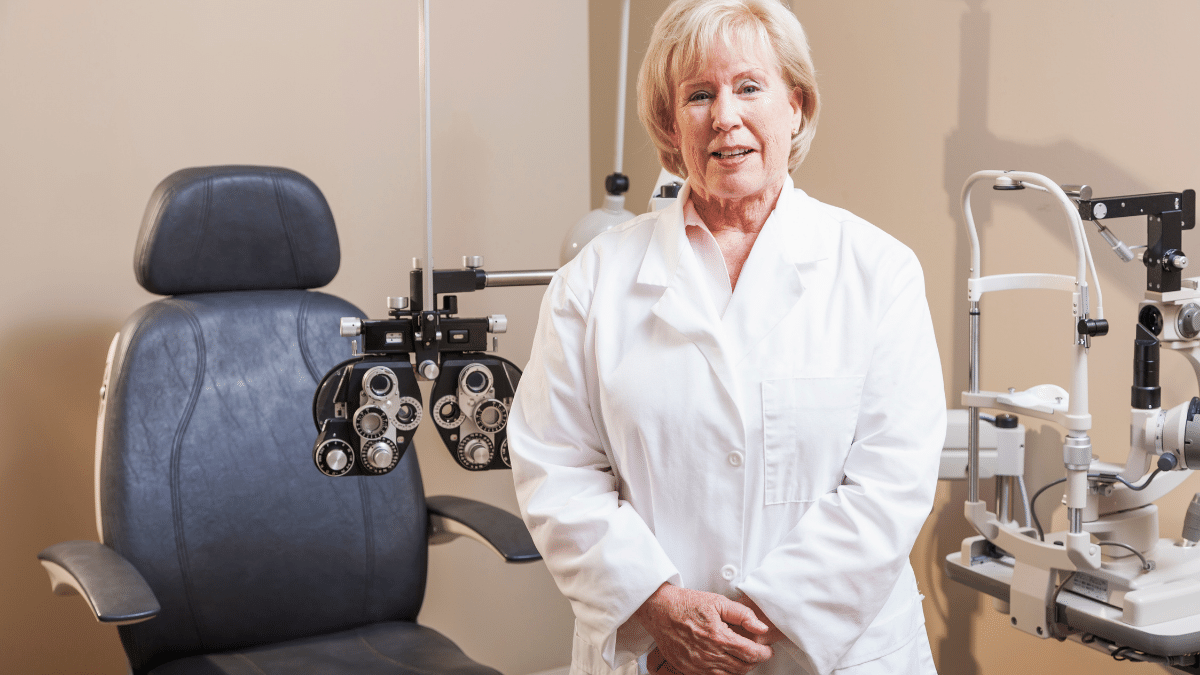What is the Average Salary of an Eye Doctor?
Eye doctors, also known as ophthalmologists, are highly trained medical professionals who specialize in diagnosing and treating eye conditions and diseases. These doctors may work in various settings, including hospitals, clinics, and private practices, and they often play a critical role in helping patients maintain their vision and overall eye health.
According to the U.S. Bureau of Labor Statistics (BLS), the median annual wage for ophthalmologists was $208,000 in May 2020. This figure represents the midpoint of all wages earned by ophthalmologists, meaning that half of all ophthalmologists earn more than this amount and half earn less.
It’s important to note that the salary of an eye doctor can vary significantly based on various factors. For example, ophthalmologists working in private practice or rural areas may earn more or less than the median wage. Additionally, an eye doctor’s level of experience and education can also impact their salary. Ophthalmologists who have completed additional training or have many years of experience may earn more than those just starting their careers.
In addition to their base salary, ophthalmologists may receive benefits such as paid time off, health insurance, and retirement plans. These benefits can help increase an eye doctor’s overall compensation and make their job more appealing to potential candidates.
Being an eye doctor can be a rewarding and lucrative career choice. With the proper education and training, ophthalmologists can significantly impact their patients’ lives and enjoy a healthy salary in the process. If you’re interested in becoming an eye doctor, it’s essential to research and understand what you can expect in terms of salary and benefits before making a decision.
What are the Benefits of Being an Eye Doctor?
Being an eye doctor is a rewarding and fulfilling career choice. From helping patients see clearly to diagnosing and treating eye diseases, many benefits come with this profession. Here are some of the top benefits of being an eye doctor:
- Improving Quality of Life: One of the most rewarding aspects of being an eye doctor is helping patients improve their quality of life. Whether it is correcting vision problems with contact lenses and glasses or diagnosing and treating severe eye diseases, you can make a real difference in the lives of your patients.
- Financial Rewards: Eye doctors are well-paid professionals. As more and more people need vision correction and treatments for eye diseases, the demand for eye doctors will remain high.
- Career Satisfaction: As an eye doctor, you get to work directly with patients and see the results of your work. You can also use the latest technology and innovative treatments to help your patients.
- Flexibility: Eye doctors have the flexibility to work in a variety of settings. You can work in private practice, a hospital, or a clinical setting. You can also focus on a particular area of expertise, such as pediatric ophthalmology or contact lenses.
- Personal Satisfaction: Eye doctors get to use their skills to help others. It knows that you are making a difference in your patients’ lives.
Being an eye doctor is a great career choice. You get to help people improve their quality of life, receive financial rewards, and work in a field that is both fascinating and rewarding.
What Education and Training Do You Need to be an Eye Doctor?
To become an eye doctor, also known as an ophthalmologist, you must complete a significant amount of education and training.
Ophthalmologists are medical doctors who specialize in diagnosing and treating eye conditions and diseases, and they play a critical role in helping patients maintain their vision and overall eye health.
Here is an overview of the education and training you will need to become an eye doctor:
- Undergraduate education: To be accepted into medical school, you must complete a four-year undergraduate degree in a scientific field such as biology, chemistry, or physics. You will also need to take the Medical College Admission Test (MCAT) as part of the medical school application process.
- Medical school: After completing your undergraduate degree, you must attend medical school for four years. During medical school, you will receive a broad education in the basic medical sciences and will also have the opportunity to gain hands-on experience through clinical rotations.
- Residency: After completing medical school, you will need to complete a residency program in ophthalmology. This typically lasts for three to four years and provides in-depth training in all aspects of eye care, including diagnosing and treating eye conditions and diseases.
- Licensure: To practice as an ophthalmologist, you must obtain a medical license in the state where you wish to work. This typically involves passing a licensing exam, such as the United States Medical Licensing Examination (USMLE).
In addition to the education and training outlined above, many ophthalmologists choose to specialize in a particular area of eye care, such as retina surgery.
This may involve additional training or education beyond the standard ophthalmology residency program.
Becoming an eye doctor is a significant undertaking that requires considerable education and training. However, for many people, the rewards of helping patients maintain their vision and overall eye health make it a fulfilling and rewarding career choice.
Other Factors That Affect Eye Doctor Salary
Several factors can affect the salary of an eye doctor, also known as an ophthalmologist. Ophthalmologists are medical doctors who specialize in diagnosing and treating eye conditions and diseases, and they play a critical role in helping patients maintain their vision and overall eye health. Here are a few other factors that can impact an eye doctor’s salary:
- Location: The location of an eye doctor’s practice can have a significant impact on salary. Ophthalmologists who work in urban or high-cost-of-living areas may earn more than those who work in rural or low-cost-of-living areas.
- Employer: The employer of an eye doctor can also affect salary. Ophthalmologists in private practice may earn more than those in hospitals or clinics, depending on the specific circumstances.
- Specialty: Eye doctors who specialize in a particular area of eye care, such as pediatrics or retina surgery, may earn more than those who practice general ophthalmology.
- Experience: As with most professions, the level of experience of an eye doctor can impact their salary. Ophthalmologists who have been practicing for many years may earn more than those just starting their careers.
- Education and training: The education and training of an eye doctor can also affect their salary. Ophthalmologists who have completed additional training or advanced degrees may earn more than those with an essential medical degree.
Overall, the salary of an eye doctor can be affected by various factors, including location, employer, specialty, experience, and education and training. Considering these factors is essential when evaluating career opportunities and negotiating salary.
How Can the Scarcity of Eye Doctors Affect Salaries?

Here are a few ways in which the scarcity of eye doctors can affect salaries:
- Higher demand: If there is a shortage of eye doctors in a particular location or region, there may be a higher demand for their services. This can lead to higher salaries for ophthalmologists, as they may be able to negotiate higher pay rates or charge more for their services.
- Limited competition: In areas needing more eye doctors, ophthalmologists may have less competition for job openings. This can also lead to higher salaries, as employers may be willing to pay more to attract qualified candidates.
- Increased workload: In areas with a scarcity of eye doctors, ophthalmologists may be asked to see more patients or work longer hours to meet the demand for their services. This can lead to higher salaries, as ophthalmologists may receive additional compensation for their increased workload.
The scarcity of eye doctors can affect salaries in various ways, depending on the specific circumstances. Suppose you’re considering a career as an ophthalmologist. In that case, it’s essential to research the job market in your desired location and understand what you can expect regarding salary and workload.
What is the Average Salary of Optometrists?

The average salary of an optometrist varies depending on experience, location, and other factors. According to the Bureau of Labor Statistics, in 2019, the median annual wage for optometrists was $111,790. The lowest 10 percent earned less than $72,930, and the highest 10 percent earned more than $183,660.
Salaries for optometrists also vary by geographical location. For example, in 2019, the average salary for optometrists in California was $134,240, while in Nebraska, the average salary was $104,350.
Many optometrists start their career as an associate of another optometrist, and after some years of experience, they may open their practice. Experience is also a factor that can influence the salary of an optometrist. According to the Bureau of Labor Statistics, the median annual wages for optometrists in the top industries in which they worked in 2019 were as follows:
Offices of Other Healthcare Practitioners: $115,100 Retail Trade: $103,860 Offices of Physicians: $102,110 Health and Personal Care Stores: $101,480 General Medical and Surgical Hospitals: $97,920
It is important to note that in addition to their salary, optometrists may earn additional income from bonuses, commissions, and other incentives. This income can be significant and can significantly increase the overall annual income of an optometrist.
Overall, the average salary of an optometrist can vary greatly depending on experience, geographical location, and other factors. We hope this article has provided you with a better understanding of the salary of an optometrist.






